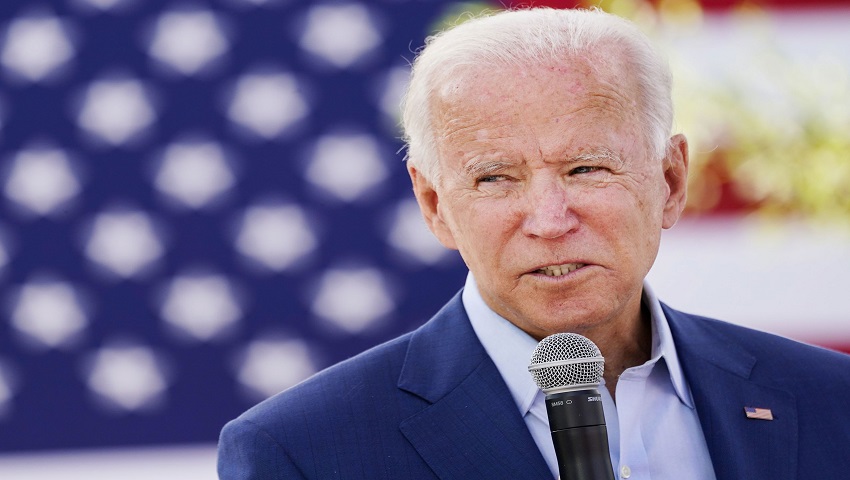President Joe Biden’s first defence budget request suggests the growing military imbalance in the Indo-Pacific is being viewed as a “future challenge” not an “urgent problem”, according to one analyst.
To continue reading the rest of this article, please log in.
Create free account to get unlimited news articles and more!
US President Joe Biden’s first defence budget request has proposed US$715 billion in spending for the 2022 financial year (FY22), up 11.3 per cent from FY21.
"This budget provides us the ability to create the right mix of capabilities to defend this nation and to deter any aggressors," US Secretary of Defense Lloyd Austin insisted.
"It adequately allows us to begin to prepare for the next fight.
“[It] in fact does provide us the ability to go after the capabilities that we need."
However, the budget includes an US$8 billion cut to new weapons procurement, with the proposed funds favouring the exploration of new technology, supported by a record US$112 billion for research and development.
According to Ashley Townshend, director of foreign policy and defence at the United States Studies Centre, this shift risks isolating Indo-Pacific partners, wary of the Chinese Communist Party’s (CCP) military build-up.
“Pentagon leaders have recently been at pains to convince the world that China is their top priority [but] President Joe Biden’s first defence budget request tells a somewhat different story,” Townshend writes.
“For all of the emphasis on China as the ‘pacing threat’ and on the need to 'revitalise' US alliances and partnerships, the Biden administration views the Indo-Pacific’s eroding military balance as a future challenge, not an urgent problem that demands real resources today.
“This is deeply troubling for America’s Indo-Pacific allies. Living with the everyday reality of China’s coercive statecraft and rapidly expanding strategic presence, regional countries need the Pentagon to ramp-up investments in their security and bolster conventional deterrence right now.”
Townshend acknowledges the need for investment in defence R&D to counter China’s own advancement efforts, but stresses that the Biden administration’s new emphasis should not come at the expense of “addressing present-day shortfalls in US military capacity and warfighting effectiveness”.
“Among the consequences — a Navy shrinking well short of its 355-ship goal and an Air Force declining significantly faster than its replenishment rate,” he continues.
“Moreover, with defence spending on operations and maintenance growing slower than inflation, there’s a risk of a prolongation of the readiness problems that have plagued the force since 2017.
“All this bodes poorly for an Indo-Pacific strategic balance in which China’s growing military might already has a coercive quality of its own.”
Such risks, he adds, might have been tolerable if the budget request included investments aimed at strengthening the US’ foothold in the Indo-Pacific over the next decade.
“After all, structural deficiencies in the armed forces can be mitigated for key regions – as the Pentagon has done for the Middle East and Europe – by prioritising the military demands of those theatres,” he writes.
But the analyst points out that the 2021-22 budget request has “all but dissolved” the US’ $5.1 billion investment to bolster Indo-Pacific Command via the Pacific Deterrence Initiative.
“Drawn-up with bipartisan congressional support by former US Indo-Pacific commander, Admiral Philip Davidson, this initiative should be funding a more resilient and distributed military posture for US forces west of Hawaii; boosting regional stocks of munitions, fuel, and logistics enablers; strengthening integrated air defences and radars; and increasing exercises and capacity-building assistance with frontline allies and partners,” Townshend argues.
“Such efforts would reduce near-term risks of deterrence failure by enhancing America’s ability to deny China a quick and easy victory in contested parts of the region.
“But these priorities have been ditched in favour of buying ships and aircraft that may never even venture into the Pacific.”
Some reports have even suggested that the initiative was watered down because Indo-Pacific mobilisation was, in Townshend’s words, “too dangerous”.
“These are not the signals that Washington should be sending its Indo-Pacific allies,” the analyst adds.
“Following a series of official speeches, assessments, and classified wargames that suggested America might fail to deter, or could even lose, a war with China, regional countries are justifiably anxious about the sustainability of US military power.
“They are also tired of waiting on the Pentagon to align its budget priorities with the mantra that the Indo-Pacific is its ‘priority theatre’.”
Townshend notes that Indo-Pacific partners have demonstrated their commitments to supporting Pax Americana, pointing to Australia’s investment in in long-range strike capability, pursuit of a “more active regional order-defending strategy”, and support for a stronger US-Australia Indo-Pacific military posture.
Reference is also made to Japan’s expansion of its amphibious rapid deployment brigade to improve island-chain defence, and greater engagement with Taiwan.
Townshend concluded: “It’s not too late for the Biden administration to set things right. If the Pentagon has come to a different assessment about the Indo-Pacific’s near-term threat environment, regional allies want to know.
“But if it’s putting the long-term China challenge ahead of today’s eroding strategic order, then it should heed its allies’ concerns and double-down on investments in regional deterrence now.”
Get involved with the discussion and let us know your thoughts on Australia's future role and position in the Indo-Pacific region and what you would like to see from Australia's political leaders in terms of partisan and bipartisan agenda setting in the comments section below, or get in touch with

 Login
Login







